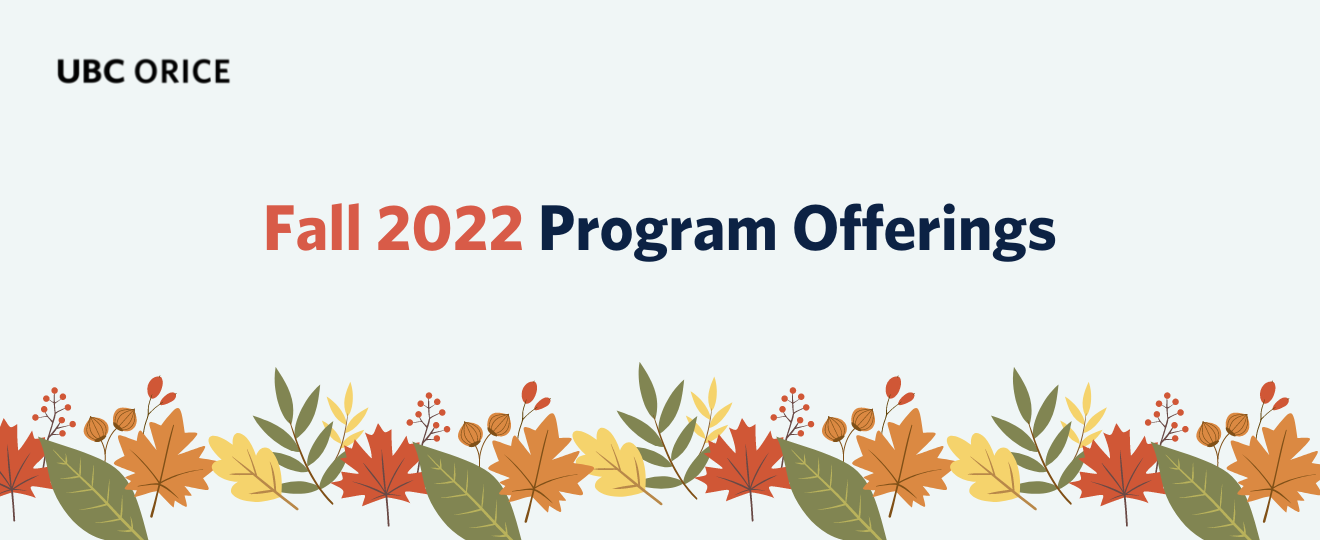
Last updated: August 24, 2022
ORICE offers two primary types of programming: co-curricular and academic. Co-curricular programs allow you to develop skills related to your studies outside of your coursework. We’ve coined the term ‘Engagementships’ to describe programs that offer students the opportunity to engage with a research question or explore a particular topic of focus with an interdisciplinary team. They are hosted in a remote/virtual space, are flexible and mostly student-led.
Academic course programs also include community-based projects, but are tailored to the learning outcomes of a specific for-credit course. ORICE international placements with community partners around the world are being offered again through three courses this 2022-23 academic year. Although collaboration has been fostered during online remote programs, immersive courses/programs taking place at the community organizations have always served as fruitful learning experiences for students.
Check out our fall program offerings for the 2022-23 academic year below:
Co-curricular Programs
Ethics of International Engagement and Service-Learning Engagementship Opportunity (Cohort #3)
Open to all upper-year undergraduate & graduate students.
Students will explore the many ways that international (and local) engagement has changed over the years and consider how our ethical framework should also adapt to reflect this. Cohort #3 will be part of developing the roadmap (project plan) for the overall project.
Food Stash Research Engagementship: An Analysis of the Rescued Food Market (Cohort #2)
Open to all upper-year undergraduate & graduate students.
The student team will work with community organization, Food Stash, to conduct participatory action research through dialogue with market users where they will be invited to voice their needs and experiences to better understand the user demographics and needs. Cohort #2 will build on the work of the first cohort.
Climate Change & the Protection of Cultural Heritage Research Engagementship (Cohort #2)
Open to all upper-year undergraduate & graduate students.
Students will engage in research and analysis to advance the understanding of Canadian cultural heritage and interdisciplinary considerations as to the effects of Canadian Armed Forces’ (CAF’s) military actions in the past, present, and future. The second cohort will build on the work of the first cohort, and also explore how climate change affects cultural heritage and why this is relevant to the CAF.
SAR ‘Scholars in Prison’ Engagementship (Terms 1 & 2)
Open to all upper-year undergraduate & graduate students.
Students will engage in research and scholarly informed activism in support of SAR’s Scholars in Prison Project– which seeks to support and free wrongfully imprisoned scholars and students around the world. This year’s case will focus on imprisoned scholars India, China, Iran, Belarus and Egypt.
Academic Courses
APSC 461 + 462: Global Engineering Leadership (International Placement Program)
Open to all undergraduate APSC students who meet course requirements. Students in Arts with strong applications may also be considered.
This program is designed to introduce upper-year students from a wide range of disciplines to concepts, theories, and practices of engineering leadership in international settings, exploring how technical problems and solutions fit in broader perspectives. The course will take place during Summer Term 1 and the international placement will be from Jul- Aug 2023.
SOWK 440J/571: Global Mental Health (International Course)
Open to all undergraduate and graduate SOWK students. Students in other health professions, such as Nursing and Public Health, are also encouraged to apply. Strong applications from students who are not in a health professional program may also be considered.
This is a 3-credit course that will take place in Nairobi, Kenya and will be taught by Professor Mohamed Ibrahim. This elective will introduce students to advanced competencies in global health practice and research, such as the global burden of mental health, social and economic determinants of mental health, the globalization of biomedical psychiatry, global mental health governance, human rights, and equity. The course will run over 4 weeks in May 2023 and will include community-based attachments.